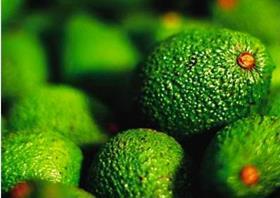
A government-backed initiative to promote avocado production in Honduras is on course to produce 105,000 avocado seedlings this year, as well the creation of a fully operational seedling traceability and marketing platform.
Three nurseries have been set up under the Avocado Healthy Seedling Project (Proyecto de Plántulas Sanas de Aguacate), in Intibucá, Comayagua and Ocotepeque.
The programme, which is run by the Ministry of Agriculture and Livestock, with the support of the International Cooperation Fund of Taiwan, aims to integrate public nurseries nationwide to ensure that enough plants are produced to satisfy growing avocado demand among the country’s farmers.
The Intibucá nursery can produce 35,000 avocado plants, while the 13,000m2 nursery in Comayagua, the largest of the three, has the capacity to produce 45,000 plants per year. The third nursery, in Ocotepeque’s San Francisco del Valle, covers an area of 6,500m2.
The goal of the project is to produce 315,000 seedlings by 2022.
Honduras exported 1,303 tonnes of avocados with a value of US$2.6m in the year to October 2019, according to Erick Martínez of the Agriculture Ministry’s National Agri-food Development Programme (Pronagro).
Shipments for the whole of 2019 rose by 76 per cent in value and 61 per cent in volume compared to the previous year.
Although it has been growing steadily, the country’s production is still too small to meet domestic demand, leading to the development of the National Avocado Plan to boost production.
The goal is to have 4,000ha of production across different departments within the next three years. Antonio Romero, coordinator of the plan, said this would be enough to cover internal demand and reduce the country’s reliance on imports from Guatemala and Mexico, as well as allow for exports to Europe and Taiwan.






No comments yet